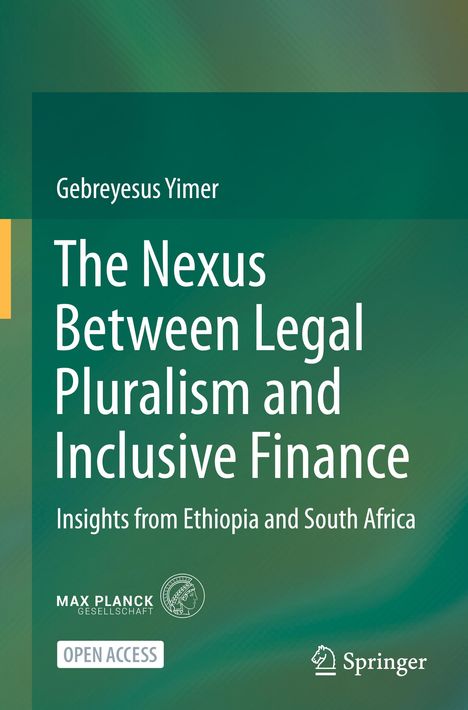Gebreyesus Yimer: The Nexus Between Legal Pluralism and Inclusive Finance, Gebunden
The Nexus Between Legal Pluralism and Inclusive Finance
- Insights from Ethiopia and South Africa
(soweit verfügbar beim Lieferanten)
- Verlag:
- Springer Nature Switzerland, 12/2024
- Einband:
- Gebunden
- Sprache:
- Englisch
- ISBN-13:
- 9783031716522
- Artikelnummer:
- 12134343
- Umfang:
- 172 Seiten
- Gewicht:
- 422 g
- Maße:
- 241 x 160 mm
- Stärke:
- 15 mm
- Erscheinungstermin:
- 11.12.2024
- Hinweis
-
Achtung: Artikel ist nicht in deutscher Sprache!
Klappentext
This open access book provides detailed information on informal credit markets in Africa and how various legal systems affect these markets. Laws that impose strict formalism exclude many people from the financial system. The lessons learned from the informal credit markets in Ethiopia and South Africa indicate that pluralism offers better opportunities for people to access affordable and sustainable financial services. Inclusive legal systems promote inclusive financial systems. Therefore, international development organisations, financial institutions, international financial policymakers and standard setters should embrace pluralism to foster sustainable, inclusive and equitable financial systems. Pluralism recognises local innovation and creativity, which are vital for inclusive financial systems to flourish.
In developing countries, many people who have no or only limited access to the services of official financial institutions often depend on informal credit markets. National law is the most critical element in terms of determining the operations of informal credit markets, defining the boundaries between formal and informal markets, and shaping the consequences of involvement in informal credit markets.
This book will interest researchers, scholars, and students in the fields of legal theory, law and society, law and anthropology, legal pluralism, law and culture, and African law. However, its relevance extends beyond academia, offering policymakers involved in inclusive finance, law and development, and financial regulation in developing countries valuable insights and perspectives to inform their decisions and strategies.

